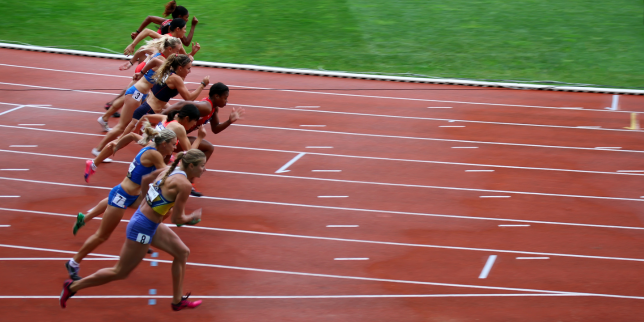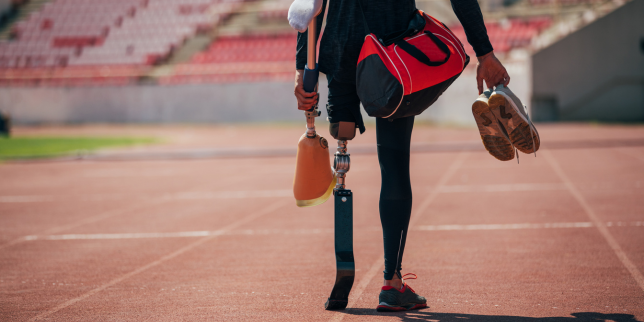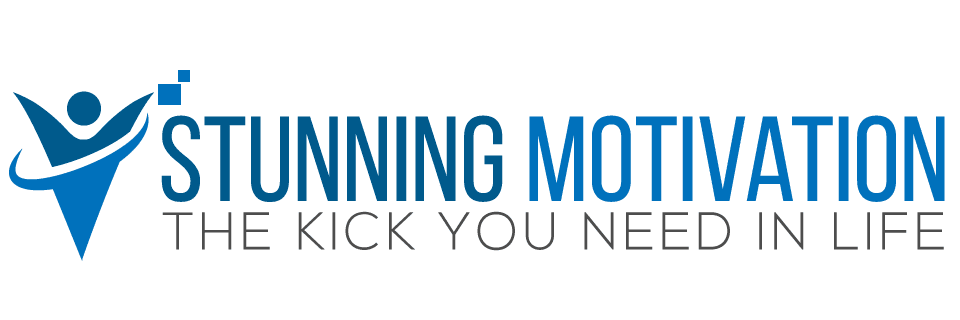Athletes are known for their exceptional physical prowess and dedication to their respective sports. However, the skills that they cultivate on the field or court often extend beyond the boundaries of their sport, contributing to their long-term success in various aspects of life. While athletic prowess is undoubtedly crucial, athletes also have the opportunity to develop a range of essential life skills that can serve them well beyond their sporting careers.
1. Resilience

Athletes frequently encounter challenges such as injuries, losses, and setbacks that test their mental and emotional fortitude. The ability to bounce back from these challenges is a life skill that serves them not only in their sports but also in their personal and professional endeavors.
Injuries play a particularly common disruption in the life of an athlete, and if you’ve suffered one, Arthroscopy Shoulder Surgery in Dallas, for example, can help with proper recovery and resilience practice. Shoulder and knee injuries are some of the most common ones, so taking care of yourself after these injuries is necessary.
Developing resilience also involves learning to adapt, staying focused on goals, and maintaining a positive mindset even in the face of adversity. This skill helps athletes navigate the ups and downs of life, enabling them to persevere through difficulties and emerge stronger.
2. Time Management

Successful athletes juggle intense training regimens, competitions, and often other commitments like education or work. Learning how to effectively manage time becomes a crucial skill that can be transferred to any area of life.
Athletes become adept at prioritizing tasks, setting realistic goals, and optimizing their schedules to make the most of each day. These time management skills are invaluable in pursuing careers, managing relationships, and achieving personal aspirations.
- Prioritizing Tasks: Athletes learn to identify tasks that have the highest impact on their performance and focus on those first. This skill helps them tackle important matters efficiently in their personal and professional lives.
- Setting Realistic Goals: Setting achievable goals is a cornerstone of an athlete’s journey. Translating this skill to daily life enables them to set realistic milestones, preventing burnout and ensuring consistent progress.
- Optimizing Schedules: Athletes optimize their training schedules to maximize efficiency and recovery. This approach extends to daily routines, allowing them to allocate time for work, family, self-care, and leisure.
- Effective Delegation: Athletes often work with coaches, trainers, and teammates, requiring effective delegation and collaboration. In life, they can delegate tasks, leveraging others’ strengths and creating a support network for their goals.
3. Teamwork and Collaboration

Team sports provide athletes with the opportunity to develop strong teamwork and collaboration skills. Athletes learn how to communicate effectively, understand the strengths and weaknesses of their teammates, and work together to achieve a common objective.
These skills are transferrable to various professional settings where collaboration and effective communication are essential for success. Athletes who have honed their teamwork abilities can seamlessly integrate into diverse teams and contribute positively.
4. Discipline and Goal Setting

Athletes thrive on discipline and goal-oriented mindsets. They set both short-term and long-term objectives, breaking down their larger ambitions into actionable steps. This practice of setting incremental goals fosters a sense of achievement and motivates continuous improvement.
Such discipline and goal-setting strategies are pivotal not only in sports but also in personal growth and professional pursuits. Athletes who have mastered these skills tend to be highly self-motivated and adaptable to new challenges. Athletes leverage these skills to:
- Maintain Consistency: The discipline developed in training translates to consistency in daily routines, fostering habits that contribute to personal and professional growth.
- Embrace Continuous Learning: Athletes understand that learning is a lifelong process. They apply this mindset to acquiring new skills and knowledge beyond their sport, ensuring adaptability and relevance in a changing world.
- Adopt a Growth Mindset: By focusing on incremental improvements, athletes embrace challenges as opportunities for growth. This mindset extends to challenges faced in their careers and personal lives.
5. Adaptability

Athletes often encounter rapidly changing situations during competitions – a sudden change in strategy, weather conditions, or unexpected twists in the game. This constant adaptation hones their ability to think on their feet, make quick decisions, and adjust to new circumstances.
These adaptive skills extend to life beyond sports, as athletes learn to embrace change and uncertainty with a proactive attitude. In a constantly evolving world, the capacity to adapt becomes a critical asset in careers, relationships, and personal growth. Athletes who possess this skill can navigate transitions and challenges smoothly, emerging as resilient and resourceful individuals.
Moreover, part of adapting effectively involves managing one’s physical health to meet changing demands. Partnering with professionals at Innovative Health Care Centers can provide athletes with the support needed to maintain peak physical condition, ensuring they’re ready for whatever comes their way, both in sports and life.
6. Stress Management

Competitive sports inherently come with pressure-packed moments where split-second decisions and high-stakes situations can determine the outcome. Athletes become adept at managing stress, controlling their emotions, and maintaining focus in high-pressure scenarios.
This skill translates remarkably well into other domains, such as the corporate world, where the ability to perform under pressure is often a differentiating factor. Athletes who have honed their stress management skills can:
- Remain Composed: Athletes are trained to keep their composure even in the most intense situations. This skill helps them navigate tense meetings, presentations, and negotiations with a calm and collected demeanor.
- Think Critically: Under pressure, the ability to think critically and make rational decisions is paramount. Athletes leverage their honed mental clarity to make strategic choices in high-stakes situations.
- Sustain Focus: Amidst the chaos, athletes maintain a laser-sharp focus on their objectives. This trait translates into unwavering concentration during critical tasks, ensuring high-quality outcomes.
- Lead Effectively: Athletes who excel in stress management can inspire and guide their teams through challenging periods, fostering a culture of resilience and adaptability.
Takeaway
In the pursuit of excellence in sports, athletes develop a diverse set of life skills that propel them toward long-term success. These skills extend beyond the arena and contribute significantly to their personal and professional growth.
Whether it’s the resilience to overcome adversity, the mastery of time management, the art of collaboration, the discipline of goal setting, the adaptability to change, or the skill of managing stress, athletes are equipped with a comprehensive toolkit for navigating life’s challenges.
So, whether they’re striving for victory on the field or conquering new horizons, athletes are poised to excel and inspire, armed with the invaluable life skills they’ve cultivated throughout their journey.


